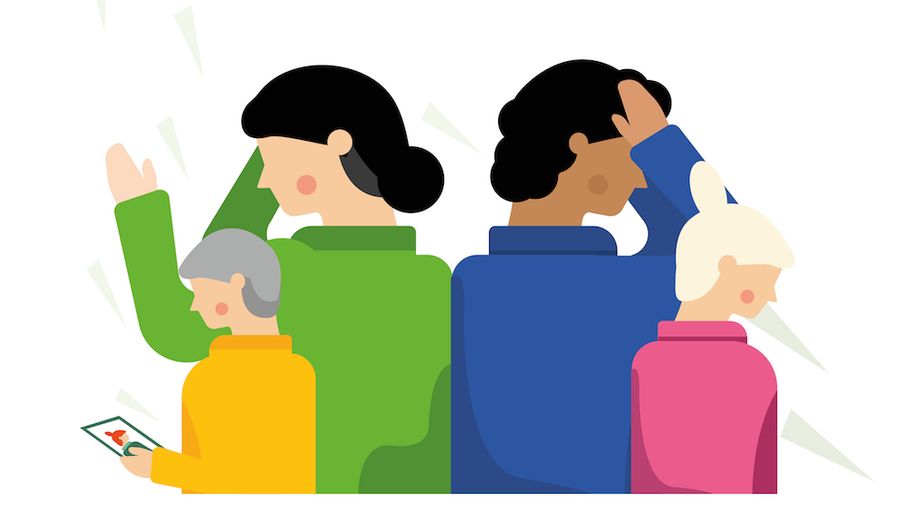Over the years it’s been known by many names: shell shock, combat stress reaction, war neurosis. But while many people will associate post-traumatic stress disorder with those at war or witnessing conflict, it’s a condition that can affect anyone. The more we understand about PTSD, the sooner those suffering can receive the help they so desperately need
At 18 years old, I was diagnosed with post-traumatic stress disorder (PTSD). I was experiencing awful flashbacks, and avoiding anything related to my trauma, which dated back to childhood. The trauma I experienced, though I didn’t understand it at the time, has shaped my life and held me back from doing things due to my fears and anxiety.
PTSD can affect people after they’ve experienced a traumatic event – which can be triggered by things such as grief, stress, or something distressing – and may lead to nightmares, flashbacks and severe anxiety.
The majority of people associate this disorder with those who’ve served in the army. However, while both men and women can experience PTSD after they have been to war, something a lot of people don’t know is that anyone can suffer with it.

Living with PTSD is hard, and can be very debilitating. Some days I’m OK and I can get on with life, but other times I’m left wrapped up in the past trying to make sense of what has happened, and why it did. Flashbacks are the hardest part for me and they feel so real and close; once they have passed I’m left thinking about them obsessively, and reliving those feelings I felt at that time.
Because of this, I’m passionate about breaking down the misconceptions surrounding PTSD, which can lead to shame regarding the disorder, and can result in people not speaking out or seeking help. The disorder can be just as scary as the traumatic event itself, and early treatment is key in aiding recovery.
Here are six misconceptions around PTSD we want to debunk – along with the truth you need to know:
1. Only people who have been in the army get PTSD
PTSD can affect anyone, man or woman, child or adult. PTSD can be caused by traumatic things in life such as a fire, child abuse, domestic abuse, a robbery, the death of a loved one, or an accident. There are so many reasons why someone could get PTSD and it’s not limited to one profession or environment. Sometimes people may get PTSD after almost being in an accident.
2. People with PTSD are angry and violent
Symptoms of PTSD vary between people as no one’s trauma is the same, but most people with PTSD are quite reserved. If they do display anger, it’s not because they are angry as a person, but because of what they have been through or witnessed. Violent outbursts are not because of the person being bad, but more because of what they are dealing with in their heads.
3. PTSD is something you should ‘just get over’
This disorder is very deep-rooted within a sufferer’s mind. Each of us will experience trauma differently in life, and what affects one person may not impact another so severely. People with PTSD know they need to move on from the past, but unfortunately it’s not that simple. Professional help is needed to guide the sufferer through the disorder. Flashbacks and nightmares are involuntary, so “just getting over it” isn’t possible. No one would want to keep reliving an awful time, would they?
4. PTSD sufferers can’t live a normal life
Treatment for PTSD helps sufferers to process and resolve their painful memories and feelings. While everyone’s experience will be different, treatments such as EMDR can address the trauma at an unconscious level, while others may find their recovery is an ongoing process, but many people are able to lead normal lives. With the right help and support, recovery is possible.
5. Everyone suffers from some form of PTSD
While it’s a sad truth that, in life, many people will witness or be victim to some form of trauma, it doesn’t mean that everyone has PTSD. Seeing something traumatic and feeling upset about it doesn’t mean you have PTSD, as there are so many aspects of PTSD beyond the initial experience of having something bad happen to you.
6. PTSD happens right after trauma
PTSD often starts months or even years after the trauma started. People know what they have been through and know it was unpleasant, but the symptoms of PTSD aren’t there yet. Out of the blue nightmares and flashbacks begin, and the person develops a sense of loss. This is why PTSD comes as such a shock for sufferers themselves, because they thought they had moved on.
Stacey Barber is a mental health blogger with OCD and PTSD, whose goal is to help, educate and inspire people regarding their own and others’ mental health. Visit fixmeinfortyfive.com to read more from her.


Comments